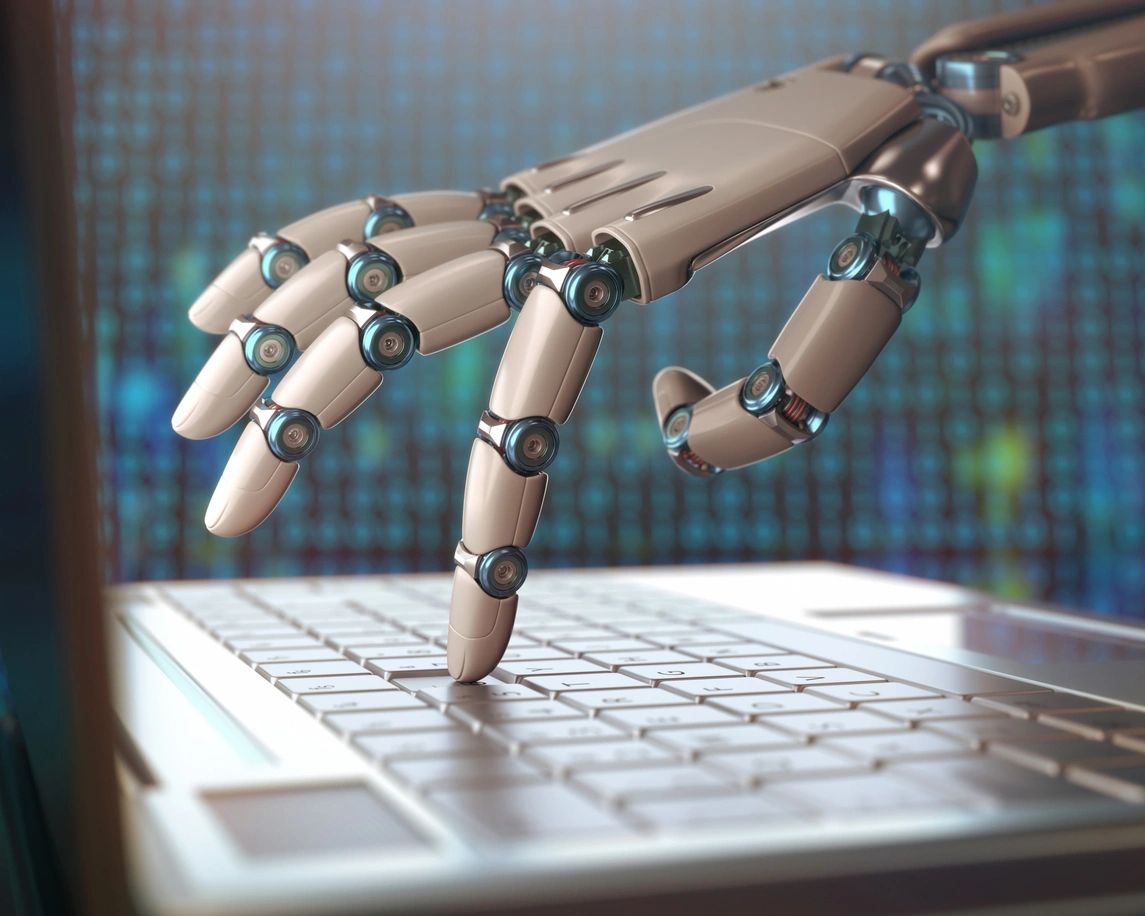Artificial intelligence (AI) has long been portrayed as both a revolutionary force, and a potential threat to the job market. With recent advancements, particularly in generative AI, concerns over mass job displacement have resurfaced.
History has shown that automation creates new job opportunities while redefining existing roles. Rather than replacing human workers outright, Artificial Intelligence will primarily serve as an enhancement—streamlining processes, improving efficiencies, and allowing employees to focus on higher-value tasks.
The Automation of Routine Tasks
One of AI’s most immediate and significant effects will be on repetitive, manual, and data-driven tasks. Many roles involve activities that follow a structured, predictable pattern, making them ripe for automation. AI-powered systems can process vast amounts of information, recognize patterns, and execute tasks at speeds far beyond human capability.
For example:
- Customer Service: AI chatbots and virtual assistants can handle common customer inquiries, freeing up human representatives to address complex or emotionally nuanced cases.
- Data Entry and Processing: AI can extract, categorize, and analyze data from documents far more efficiently than a person, reducing errors and enhancing accuracy.
- Manufacturing and Logistics: Robotics and AI-driven systems can optimize supply chains, automate assembly lines, and improve warehouse management, leading to reduced operational costs.
- Administrative Work: Scheduling, invoice processing, and report generation can be streamlined through AI-powered tools, minimizing human intervention in routine tasks.
While these automations may reduce the need for some jobs, they also allow workers to focus on more strategic, creative, and decision-making responsibilities, ultimately enhancing productivity.
ArtificiaI Intelligence as a Job Creator
Despite fears of widespread job loss, AI is also a significant driver of job creation. Just as the Industrial Revolution and the rise of computers led to entirely new professions, AI is generating demand for roles that did not previously exist. Some emerging jobs include:
- AI Specialists and Engineers: The development, training, and maintenance of AI systems require experts in machine learning, data science, and neural networks.
- AI Ethics and Compliance Officers: As AI takes on more decision-making tasks, there is an increasing need for professionals who ensure its fairness, transparency, and compliance with regulations.
- Prompt Engineers and AI Trainers: With the rise of generative AI tools, companies seek specialists who can craft effective prompts and refine AI-generated outputs for business applications.
- Cybersecurity Analysts: As businesses integrate AI, new cybersecurity risks emerge, increasing the demand for experts who can protect AI-driven systems from cyber threats.
- Human-AI Collaboration Managers: As AI augments workforces, companies will need professionals who can optimize the interaction between humans and machines, ensuring smooth integration into workflows.
These new career opportunities illustrate how AI does not merely replace jobs—it also reshapes industries and creates entirely new fields of employment.
Enhancing Efficiency in Business Operations
AI’s role in business extends beyond job displacement and creation; it significantly enhances efficiency across industries. Companies that embrace AI-driven tools can optimize workflows, improve decision-making, and reduce operational costs. Below are some specific ways AI enhances business processes:
- Predictive Analytics: AI-powered data analysis allows businesses to forecast trends, customer behaviors, and market demands with greater accuracy, helping companies make informed strategic decisions.
- Personalization and Marketing: AI can analyze consumer data to deliver personalized marketing campaigns, improving customer engagement and increasing sales conversion rates.
- Human Resources Optimization: AI streamlines hiring by scanning resumes, identifying top candidates, and even conducting initial interview assessments. It can also assist with employee training through personalized learning modules.
- Fraud Detection and Risk Management: AI algorithms can identify unusual patterns in financial transactions, helping prevent fraud and minimizing financial risks for businesses.
- Healthcare Advancements: AI is revolutionizing healthcare by assisting in diagnostics, drug development, and patient monitoring, improving medical efficiency and patient outcomes.
These applications demonstrate that AI is not merely about job displacement—it is a tool for maximizing human potential and business performance.
The Historical Perspective on Job Displacement
Concerns about job loss due to AI are not without merit, but they should be contextualized within the broader history of technological advancements. Similar fears arose with the advent of the steam engine, electricity, and computers. Each of these innovations led to shifts in the labor market, yet they also created new industries and career paths.
For instance:
- The Industrial Revolution displaced many manual laborers, but gave rise to factory jobs, engineering careers, and new production-based economies.
- The Internet Boom automated many clerical roles, but generated a massive need for IT specialists, web developers, and digital marketers.
- The Rise of Automation in Banking reduced the need for tellers, but expanded opportunities in financial analysis, fintech, and electronic transactions.
These historical parallels suggest that Artificial Intelligence will follow a similar trajectory—transforming job roles rather than eliminating work altogether. While certain positions may decline, new opportunities will emerge, often requiring skills that blend human creativity with AI’s capabilities.
Preparing for an AI-Integrated Future
As AI continues to evolve, businesses and individuals must adapt to remain competitive. Here are some key strategies for navigating this shift:
- Upskilling and Reskilling: Workers should seek to develop skills that complement AI, such as critical thinking, emotional intelligence, and problem-solving. Learning AI-related competencies, such as data literacy and coding, can also provide a competitive edge.
- Emphasizing Creativity and Human Skills: AI excels at automation, but human intuition, empathy, and creativity remain irreplaceable. Careers in design, storytelling, strategy, and relationship management will continue to thrive.
- Encouraging AI Collaboration: Businesses should focus on integrating AI as a collaborative tool rather than a replacement for human employees. AI should enhance decision-making, productivity, and innovation rather than act as a substitute.
- Adapting to New Roles: As AI transforms industries, professionals should remain open to career pivots, embracing new opportunities in AI-driven fields.
The full impact of Artificial Intelligence isn’t yet known
AI is undoubtedly changing the job market, but its impact will likely be no greater than past technological revolutions. While some jobs will be automated, new roles and industries will emerge, reshaping employment rather than eliminating it.
Businesses that leverage AI effectively will see improved efficiency, better decision-making, and enhanced innovation. Workers who proactively develop complementary skills will find opportunities in an evolving job landscape. Rather than fearing AI, society should embrace it as a powerful tool that, when used correctly, can drive progress and prosperity for all.
So, is AI coming for your job? The answer isn’t a simple yes or no—it depends on how well businesses and workers adapt to this ever-evolving technology. While artificial intelligence is undoubtedly transforming the workplace, its impact will likely be no more disruptive than previous technological advancements.





Leonel3499
AI is evolving quickly. Do you feel AI is capable of running itself without human programming and like in the movies going rogue? I wonder if AI is able to override any restrictions put on it. I suppose it depends on what capacity it is used – machine operating robots are very different to information fed brain bots